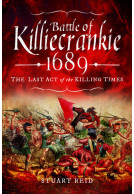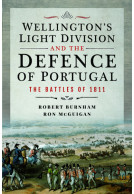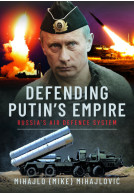Wellington's History of the Peninsular War (Hardback)
Battling Napoleon in Iberia 1808–1814
(click here for international delivery rates)
Order within the next 10 hours, 36 minutes to get your order processed the next working day!
Need a currency converter? Check XE.com for live rates
| Other formats available - Buy the Hardback and get the eBook for free! | Price |
|---|---|
| Wellington's History of the Peninsular… ePub (19.1 MB) Add to Basket | £6.99 |
Though pressed many times to write about his battles and campaigns, the Duke of Wellington always replied that people should refer to his published despatches, and he refused to add further to his official correspondence, famously remarking that: ‘The history of a battle, is not unlike the history of a ball. Some individuals may recollect all the little events of which the great result is the battle won or lost, but no individual can recollect the order in which, or the exact moment at which, they occurred, which makes all the difference as to their value or importance.’
Yet Wellington did, in effect, write a history of the Peninsular War in the form of four lengthy memoranda, summarising the conduct of the war in 1809, 1810 and 1811 respectively. These lengthy accounts demonstrate Wellington’s unmatched appreciation of the nature of the war in Spain and Portugal, and relate to the operations of the French and Spanish forces as well as the Anglo-Portuguese army under his command.
Unlike personal diaries or journals written by individual soldiers, with their inevitably limited knowledge, Wellington was in an unparalleled position to provide a comprehensive overview of the war. Equally, the memoranda were written as the war unfolded, not tainted with the knowledge of hindsight, providing a unique contemporaneous commentary. Brought together by renowned historian Stuart Reid with reports and key despatches from the other years of the campaign, the result is the story of the Peninsular War told through the writings of the man who knew and understood the conflict in Iberia better than any other.
These memoranda and despatches have never been published before in a single connected narrative. Therefore, Wellington’s History of the Peninsular War 1808-1814 offers a uniquely accessible perspective on the conflict in the own words of Britain’s greatest general.
Reviewed by
John Morewood Secretary of the Waterloo Association
This engaging and well structured book by Stuart Reid does a fine job in providing a compelling perspective on one of the British Army's great campaigns through the eyes of an extraordinary man.
Guards Magazine, The Journal of the Household Division
As featured by
The Armourer, December 2019
The work of Stuart Reid is extremely valuable for the enthusiast of the Napoleonic wars and the figure of Wellington.
Old Barbed Wire Blog
Read the full Italian review here
It is to be commended as an excellent source of reference and a chance to see through Wellington’s eyes.
Army Rumour Service (ARRSE)
Read the full review here
Based on four lengthy memoranda by Wellington, summarizing the conduct of the War, 1808, 1809,1810, and 1811. This is the closest Wellington came to writing his memoires of the Peninsular War – Highly Recommended
Firetrench
Read the full review here
This is a very good read for the general reader and a valuable resource for the specialist. We highly recommend it.
Clash of Steel
Read the full review here
We are used to seeing caricatures of Wellington as portrayed by Stephen Fry in Blackadder III and by Peter Bowles in Victoria, the latter suggesting that he was a well educated man rather than the blustering buffoon played so brilliantly by Fry, and Stuart Reid's sterling work on editing and putting together Wellington's own accounts of the Peninsular War from 1809-1811 is masterly and amazing at the same time. An historical gem.
Books Monthly
About Stuart Reid
Stuart Reid was born in Aberdeen in 1954 into a family with a tradition of service in the Army stretching back through the Battle of Mons to Culloden and beyond. He is the author of numerous military history publications and has written extensively upon Scottish military history during the seventeenth century Civil War and the Jacobite period.




















